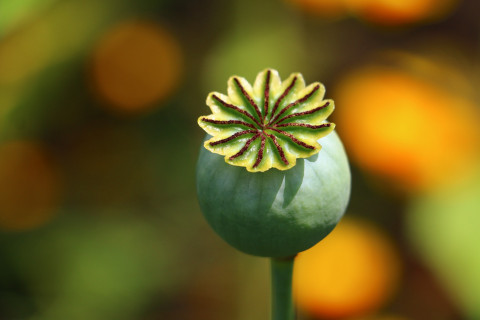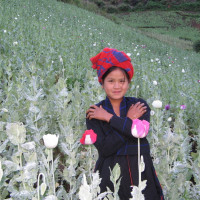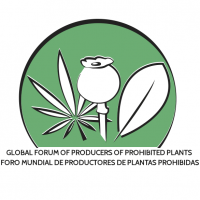Statement from the 6th Myanmar Opium Farmers' Forum
Publication date:
Between 26 and 28 May 2018, representatives of opium farming communities in several states in Myanmar came together in Lashio, Shan State, to share experiences, concerns, and initiatives on the issue of illicit cultivation, especially in relation with supply-side policies which have affected their lives and livelihoods. A final statement was concluded at the end of the forum.

Lashio, Northern Shan State
28 May 2018
We, representatives from Kayah, Kayan, Shan, Pa-O, Lahu and Kachin opium farming communities, came together in Lashio in Shan State during 26-28 May 2018, to discuss the challenges we face in our lives, and to share experiences and find ways to solve our problems. We set up the Myanmar Opium Farmer’s Forum (MOFF) to make our voices heard in 2013, and this was our 6th annual MOFF meeting.
Drug policies and laws should respect the rights of producers’ communities, and we should be involved in decision making processes that affect our lives.
We grow opium as a cash crop because we are poor and do not have other livelihood opportunities. We do not have food security and there is no job in our village to provide income to feed our families. We live in isolated and underdeveloped areas, often affected by conflict where public services are absent. Access to markets for other crops is very difficult. We use the money we earn from opium to buy food and basic household needs, send our children to school and pay for healthcare. For us, opium cultivation is a way to solve our problems. The government is targeting us with eradication, and government officials demand bribes and illegal taxation. As we have no other options to sustain our livelihoods, this is driving us further into poverty. Every year the government eradicates poppy fields, and the community has to pay the price. We grow opium and we live in fear. We grow opium and the government comes and eradicate our fields. As we have no alternatives, we grow opium again, and eradication also comes again. It is a never ending cycle.
We need to change the policy and we need another approach than eradication. Instead of treating us as criminals and taking away our livelihoods, what we need from the government is support to develop our communities, provide basic services, and help find access to markets for other products. Our main demand is not to arrest and criminalize opium farmers, and not to eradicate our fields, and provide development instead.
We have been growing opium for generations. It is impossible to stop opium cultivation in the country at once. We need a gradual reduction of opium cultivation and sufficient support while finding other means of surviving. Development programmes and alternative crops should be in line with local conditions.
Many of us live in areas where the government cannot provide basic services, including health and education. In such locations, opium is also used as a traditional medicine. Opium is used as a painkiller, to treat dysentery, malaria and persons suffering from fever. Opium is also used to tame animals, such as elephants, and has veterinary functions to treat animal diseases. Opium is used to repel poisonous insects away and also used as protection against bad spirits in many indigenous communities. For some of us, opium is part of our culture.
We want recognition of medicinal and traditional use of opium in some of our communities. Certain amounts of opium should be allowed for personal use. In cooperation with the government, we would like to find models to allow licensed opium cultivation for medicinal and pharmaceutical use, for local and international markets. Other countries in the world, such as India, have such models. We want to explore how these can be piloted in Myanmar.
We have lived on and managed our lands for generations with our customary systems. However, the current land laws do not recognise our ethnic customary and communal rights to land. Shifting cultivation, which is still widely practised by many opium farmers for licit crops, is not recognized at all. As a result, many of our ancestral lands have been confiscated.
Lack of land tenure security is one of the reasons why some of our communities have resorted to opium cultivation, as a survival mechanism. In one case, after the Myanmar army confiscated our farmland, and the community had no other option but to start poppy cultivation in remote uplands to be able to feed our families.
Therefore, the current land laws should be abolished, and a new national land law should be made, which recognises, protects and promotes out traditional customary and communal systems.
Some of our communities were displaced during the ‘Four Cuts’ campaign of the Myanmar army against ethnic armed groups. For example, during 1998-2002 a whole village of one of our members was forcibly relocated by the Myanmar army. “When we were able to return to our village, they had nothing to eat and nothing in our hands. We did not grow opium in the past, but after coming back we had no other option. Later, the whole village grows opium.”
Peace is very important for us. Many of us live in areas affected by conflict. In these areas it is very difficult to grow other crops. Our regions are very undeveloped and lack basic government services. We want to be treated as equal citizens. There are many links between drugs and conflict. We have to pay opium tax to many armed groups, government officials and the Myanmar army. As long as there is no equality, there will be no peace in the country. And as long as there is no peace, there will be no development.
To solve all these problems, there should be a separate session on drugs issues in the peace process and political dialogue. In these sessions, opium farmers should be adequately represented. We also want representatives from our Myanmar Opium Farmers’ Forum to be included in such discussions.



